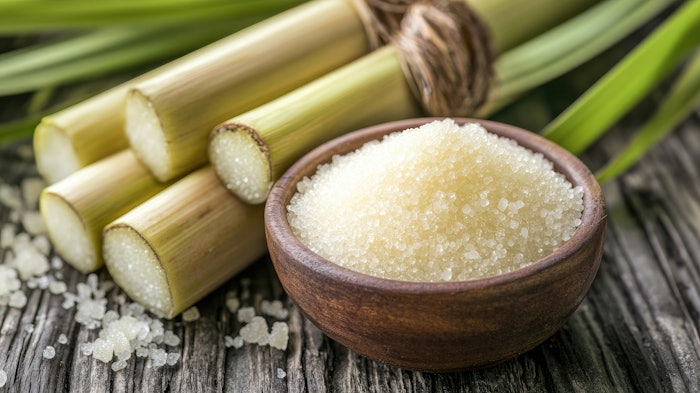
As factors such as climate change and geopolitical tensions continue to put strain on natural resources, companies in the flavor and fragrance industries are adapting their sourcing strategies.
Perfumer & Flavorist+ reached out to Dean Anthony, chief executive officer of Monova Food Ingredients; Captain T.R. Muralidharan, managing director of Asean Aromatics Private Limited; Bhuvana Nageshwaran, director of F&F at Ultra International Limited; Dimitar Petkov, co-founder and business development manager at Essential Oils and Herbs Ltd; Ambre Pelissier, director at SCA3P; and Lillian Wu, founder of ILITAKAO International to get their thoughts on how this area of their business has changed and when they see on the horizon.
How have you seen the materials sourcing landscape evolve over the last decade in the flavor and fragrance industry?
Dean Anthony [DA]: This is a fascinating subject, as global challenges affect even the most modest of procurement demands. There is a generational decoupling, and in my view, this exacerbates the demands placed on the traceability, materials sourcing, and logistical teams.  Dean Anthony, chief executive officer of Monova Food IngredientsCourtesy of Monova Food Ingredients
Dean Anthony, chief executive officer of Monova Food IngredientsCourtesy of Monova Food Ingredients
Capt T.R. Muralidharan [TRM]: Having spent over 30 years in the fragrance & flavor industry, the sourcing of several raw materials have seen new geographical areas coming up. To emphasise on one such example from my 15 years experience specializing in Indian Santalam album, famously known as Indian sandalwood, I’ve seen the sandalwood scene rapidly evolve. India was the primary, undisputed destination for santalum album, [but it is] now being cultivated in other parts of the world due to certain factors such as sustainability and legality. We are now seeing the resurgence of Indian sandalwood with active support from the government of India. The government forest department (Mysore and others) are conducting frequent auctions for sale of legal sustainable sandalwood.
Bhuvana Nageshwaran [BN]: Over the last decade, materials sourcing in the flavor Bhuvana Nageshwaran, director of F&F at Ultra International LimitedCourtesy of Ultra International Limited
Bhuvana Nageshwaran, director of F&F at Ultra International LimitedCourtesy of Ultra International Limited
Dimitar Petkov [DP]: Over the past decade, the sourcing of essential oils has shifted significantly toward sustainability, traceability, and ethical production. Bulgaria, Dimitar Petkov, co-founder and business development manager at Essential Oils and Herbs Ltd
Dimitar Petkov, co-founder and business development manager at Essential Oils and Herbs Ltd
Ambre Pelissier [AP]: Over the past decade, we've seen significant variations in Ambre Pelissier, director, SCA3P
Ambre Pelissier, director, SCA3P
How has consumer demand for natural and organic products impacted your approach to sourcing materials?
Lillian Wu [LW]: Consumers and brands are now more concerned about where Lillian Wu, founder of ILITAKAO InternationalCourtesy of ILATAKAO International
Lillian Wu, founder of ILITAKAO InternationalCourtesy of ILATAKAO International
[TRM]: The awareness about insecticides and pesticides and their impact on human health and wellbeing has increased significantly over the last few years. So much so that organic cultivation is being taken up on a much larger scale. Consumers are more aware of what now goes into a product and watch trends very Captain T.R. Muralidharan, managing director of Asean Aromatics Private LimitedCourtesy of Asean Aromatics Private Limited
Captain T.R. Muralidharan, managing director of Asean Aromatics Private LimitedCourtesy of Asean Aromatics Private Limited
[BN]: The growing consumer demand for natural and organic products has led to a fundamental shift in how materials are sourced. We are now seeing more investments in organic certification processes, as well as partnerships with sustainable farms and production facilities. It has also led to an increased demand for raw materials that are not only natural but also free from harmful chemicals and GMOs. We are prioritizing organic certifications and working with trusted suppliers who meet high sustainability and ethical standards.
[DP]: The surge in consumer preference for clean-label, natural, and organic products has reshaped sourcing strategies. Bulgarian producers are expanding pesticide-free cultivation and seeking certifications like ECOCERT and USDA Organic to meet strict regulatory and market requirements.
Beyond compliance, industry players are also investing in biodiversity conservation, sustainable harvesting, and fair-trade initiatives. However, for true sustainability, the industry must go beyond certification and ensure that farmers receive fair compensation for their crops, incentivizing them to continue traditional farming instead of switching to more commercially viable but ecologically damaging alternatives.
How are geopolitical factors, such as tariffs or supply chain disruptions, impacting your ability to source and export materials?
[TRM]: Still tariffs will always have a huge impact on businesses. However, various trade agreements between the countries go a long way in reducing tariffs and are beneficial to the participating countries. For instance, the treaty between India and Japan allows us to export duty-free. Similarly the treaty between India and Indonesia allows us to import without customs duty.
[BN]: Geopolitical factors like tariffs, trade wars, and supply chain disruptions have significantly impacted material sourcing and export capabilities. For instance, tariffs on raw materials or finished goods can increase costs, leading to the need to reconsider supply chain strategies or find alternative sources. Trade barriers or political instability in key sourcing regions have also created a level of uncertainty. In some cases, we've had to diversify suppliers and explore new regions to mitigate risks. Additionally, ongoing supply chain disruptions, such as those caused by the pandemic or extreme weather events, have highlighted the need for greater flexibility and resilience in our sourcing and distribution networks. Raw materials like sandalwood have been increasingly challenging to source.Madeleine Steinbach at Adobe Stock
Raw materials like sandalwood have been increasingly challenging to source.Madeleine Steinbach at Adobe Stock
What new trends do you anticipate will shape materials sourcing and global trade in the coming years?
[DA]: We must work harder and closer with our raw material manufacturers in partnerships at their locations. Maintaining the highest levels of integrity while protecting our intellectual property is always a challenge, but in today's geopolitical landscape it is more mission-critical than ever. In my experience, the expansion and contraction of market demands is the watermark of our profession. We were good at it back in the day, and even better at it today. I anticipate the optimism of youthful contributors shaping the most positive trade routes yet to be pioneered.
[BN]: In the coming years, I anticipate that sustainability will continue to be a major trend influencing material sourcing. As companies face mounting pressure to reduce their carbon footprints, there will likely be increased investments in sustainable materials and eco-friendly packaging. Additionally, innovations in biotechnology may give rise to new sustainable materials that could transform sourcing practices. Another trend will be the continued rise of regional sourcing, as companies seek to mitigate risks related to international supply chain disruptions. Lastly, the integration of digital tools such as blockchain for greater transparency and traceability will be crucial for meeting consumer demands for accountability in sourcing practices.
[LW]: While consumers are becoming more aware of natural and organic products, I believe that awareness alone isn’t enough. "Organic" is often a business tool. Large-scale organic farming dominates the organic industry, shaping certifications, supply chains, and pricing structures to fit profit-driven models. And many “organic” certifications can be manipulated, or selectively applied to fit business needs. Let’s be honest—there are plenty of ways to work around regulations in the industry. Consumers assume that an organic label automatically means better, safer, and more environmentally friendly, but that’s not always the case.
Small farmers and businesses who genuinely follow organic principles struggle to stay profitable. They don’t have the money for certifications, and they can’t produce at the scale that big companies do. Even though they might be growing and processing their materials with far more care, they’re often left behind in the market. What they do doesn’t make financial sense in today’s economy.
I think it's time to rethink what “organic” really means. In the future we may move beyond organic certification and prove real transparency in sourcing. By strengthening direct relationships with farmers and small producers to ensure ethical practices. And one more, it's about recognizing and valuing the people who dedicate their lives to cultivating high-quality, sustainable ingredients. By supporting them, we can share this joy with customers who believe in the same values.
[AP]: We believe that the demand for natural products and products sourced ethically and responsibly, with a short supply chain and full traceability, will continue to grow as consumers increasingly expect sustainability. We are also convinced that geopolitical tensions will lead to a change in cultivation areas and more protectionism. Finally, climate change could also impact the distribution of crops at the global level. This context could lead to a revaluation of prices at first but could also subsequently create economic imbalances, and a potentially even more volatile environment.










